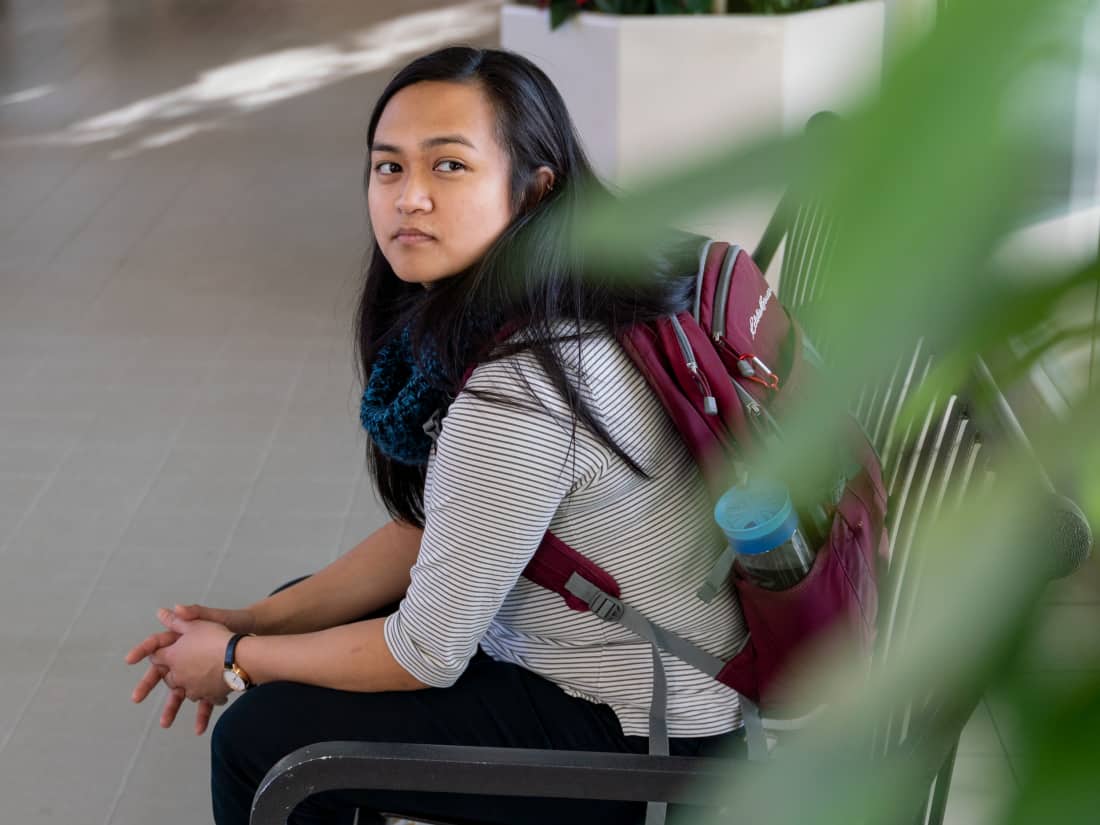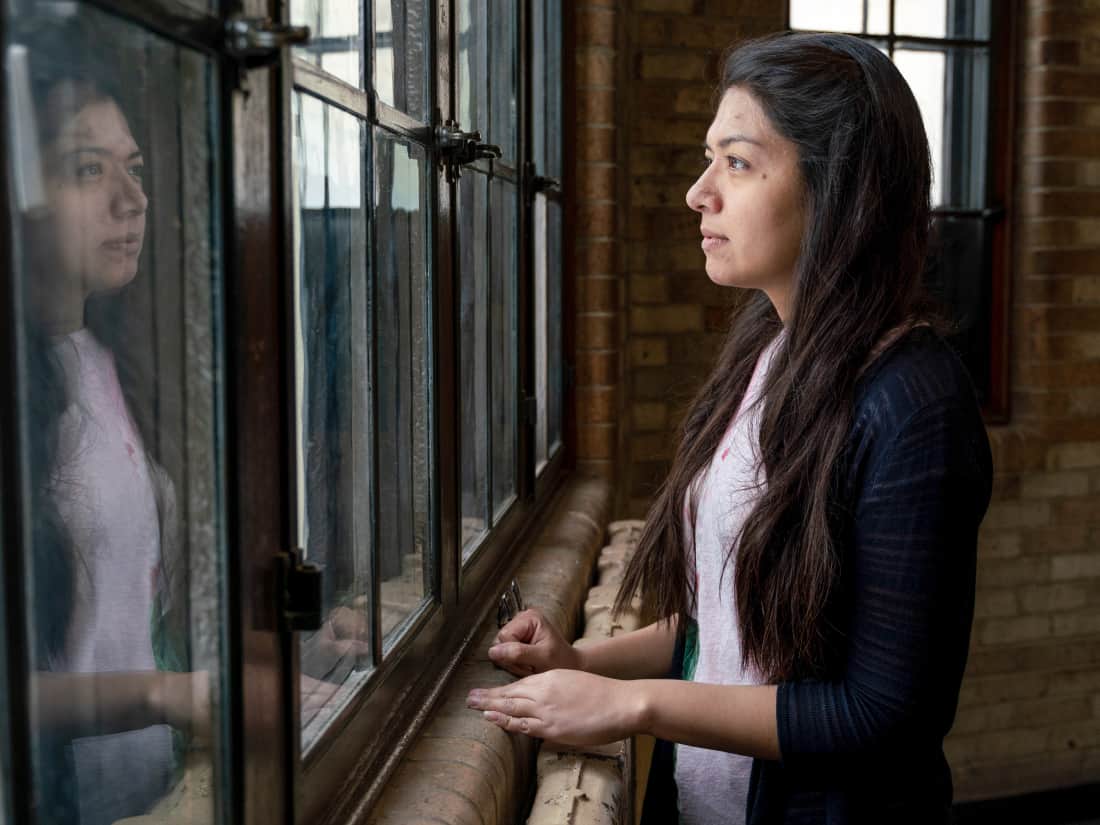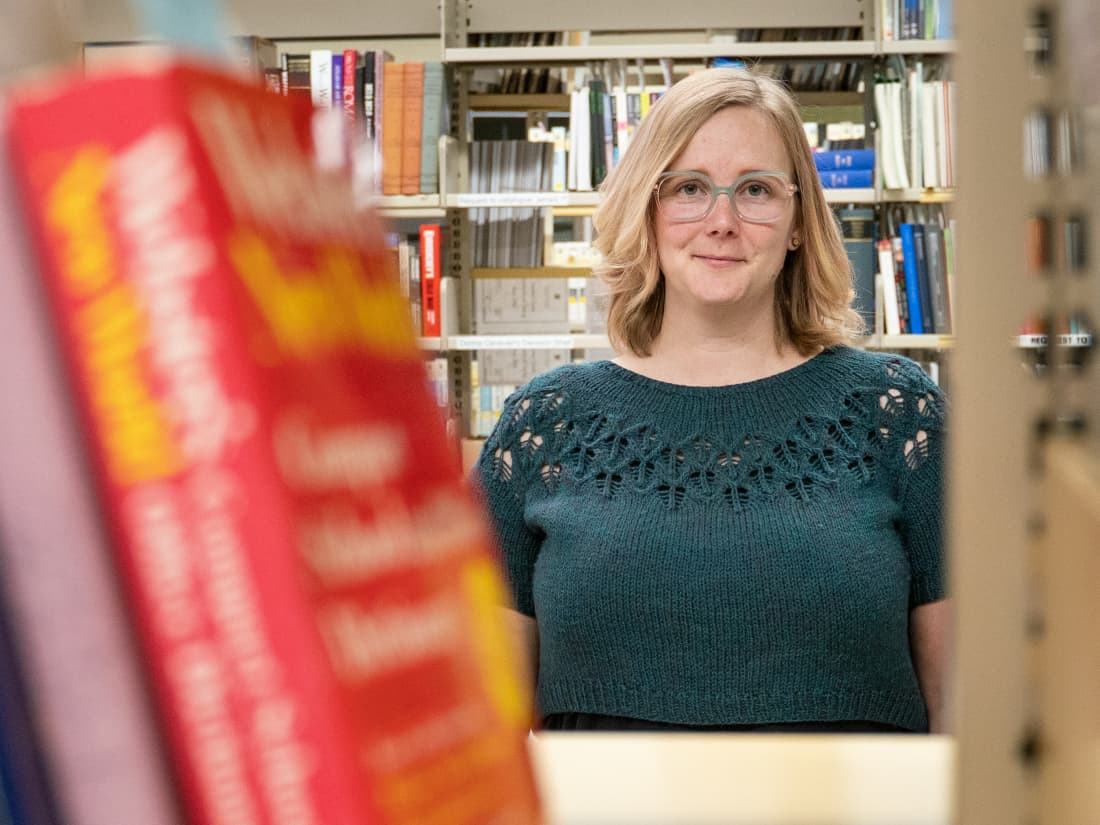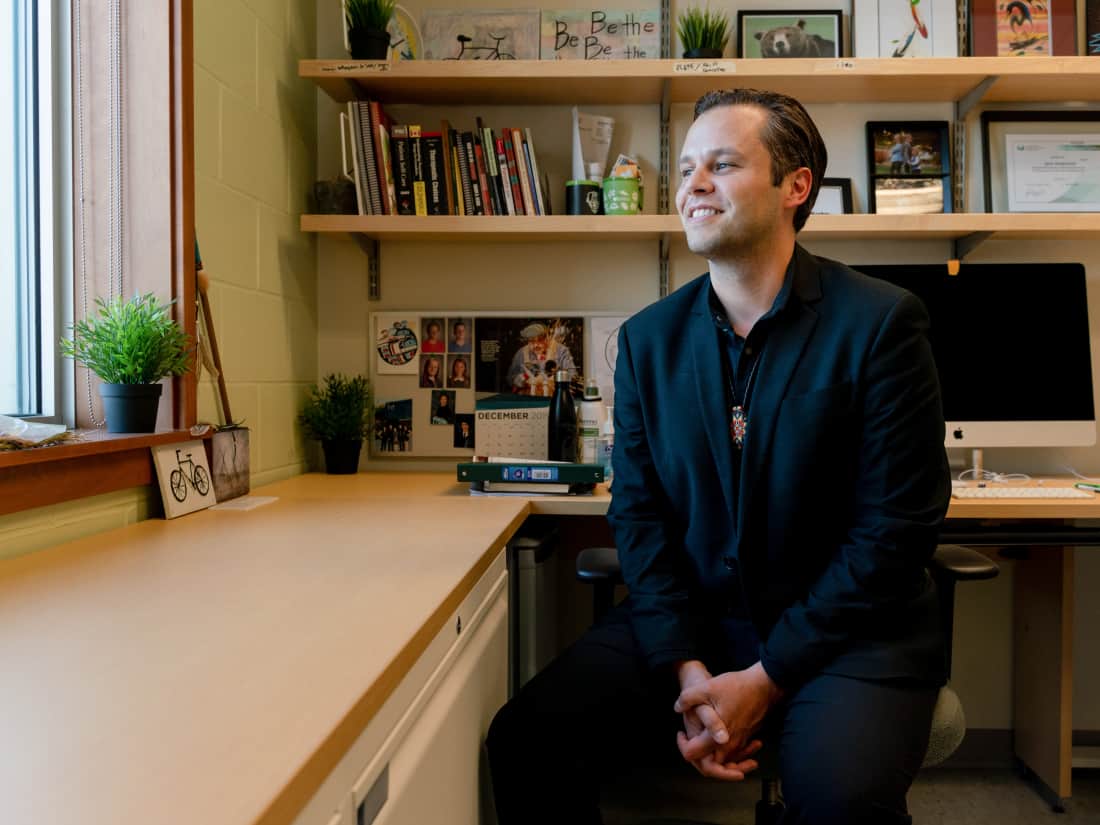Whether you are a student, faculty or staff member on campus, feelings of unworthiness run high in academia.
This psychological phenomenon is known as impostor syndrome, which can be defined as an individual’s consistent fear of being exposed as a fraud and an inability to internalize accomplishments.
In 1978, Pauline Rose Clance and Suzanne Imes first coined the term in an article titled “The Impostor Phenomenon in High Achieving Women.” This phenomenon is unique because it is common among those who are high achieving and successful, and shouldn’t be equated with low self-esteem or confidence.
While impostor syndrome is more common among those with marginalized backgrounds, it is experienced by those in all walks of life.
In exploring this issue, I spoke to a PhD student in chemistry, a university librarian, an agriculture undergrad student and a pharmacy faculty member to hear their personal experiences.
From the outside, these individuals seem to have it all together. Despite their external successes, however, they all have experienced impostor syndrome.
Horticulture undergraduate student Eliza Mae Acode

Acode is a fourth-year horticulture science student. She is currently doing her thesis while volunteering regularly for non-profit organizations.
She was co-chair for two years with the refugee resettlement organization World University Service of Canada. She also worked for the university for two years while in school, helping international students and organizing cultural celebration events. Currently, she is a mentor at WUSC and is employed with the Government of Canada.
She first heard of impostor syndrome when she was having dinner with a friend a few years ago.
“I was telling her my experience of this volunteer work… I was with grad students and masters [students], PhD people and professors,” Acode said. “I felt like I don’t deserve to be with this group of people.”
Before organizing a cultural event, Acode’s manager sat her down to compliment her work. It was then that she realized her experience with impostor syndrome.
“He sat me down and said ‘Eliza, you’re in this position right now because we really think you can do it. We see something in you.’ I got really emotional in front of him… It was just kind of a wake-up conversation,” Acode said.
She says that being an immigrant has led her to have high standards for herself. Acode is careful when speaking English as it is not her first language. Acode also believes that the university needs to talk more about impostor syndrome.
“Open your vulnerability to people. Some people are not ready to face that but I realized that it could be a good thing because people can relate to you,” Acode said. “One of my mentors said before, ‘you can accomplish more than you think.’”
PhD candidate in chemistry Josseline Ramos-Figueroa

Ramos-Figueroa came to Canada from Perú over five years ago for graduate school. She is a PhD candidate researching the interface of chemistry and biology. Additionally, she is a helper with the Student Learning Services’ Grad Peer Mentor program.
After researching impostor syndrome for a peer mentor workshop she was co-leading, Ramos-Figueroa began to reflect on her own experiences with the phenomenon.
“I found that along all my years of my PhD, all of the different times I felt that I didn’t recognize it or how it was affecting my behaviors,” Ramos-Figueroa said. “That’s why I think, ‘Oh my god, I would have tried harder,’ you know? I would have tried to think differently.”
There were moments while in grad school that she did not understand the experiments she had to do. She says that impostor syndrome can limit individuals from reaching their full potential because of fear.
“I just gave up… I didn’t research further because I thought ‘I’m just not good enough,’” Ramos-Figueroa said. “I [felt] like I didn’t probably belong to the scientific community or chemistry community.”
Being an immigrant intensified those feelings. She says that for grad students, their personal conditions can act as barriers to success.
“You have to overcome different things like language barriers. You have to find a new group of people. How are the new kind of societal guidelines? Even though you think they’re not that important, it adds up,” Ramos-
Figueroa said. “It isolated me.”
Self-reflection was the tool that helped Ramos-Figueroa address her impostor syndrome. She says that there has to be a mind-shift where an individual reframes how they think about themselves.
“Just get it out of you and find that everybody’s feeling that way [too],” Ramos-Figueroa said. “Even if you’re doing hard work to reach a goal, it’s still an accomplishment. You’re working for it. You still don’t recognize the strength that you’re putting into doing that time.”
Assistant electronic resources librarian Jaclyn McLean

McLean manages all of the online collections of the library, the budget for the collection and negotiates all the licenses, among other responsibilities.
Three years ago, McLean gave a presentation about impostor syndrome titled The Elephant in the Room: Imposter Syndrome and Librarian Researchers after having experienced it early in her career.
McLean says that university librarians, as faculty members, must conduct research despite their master’s program not being thesis based. This, in turn, is why McLean believes the syndrome is commonly seen in librarians.
While she still sometimes agonizes over small flaws in her work, McLean has moved past those feelings of being an impostor.
“As you know yourself and you build some level of confidence in what you do, you start to realize that … the details you might agonize about are things that no one else is even going to notice,” said McLean.
Impostor syndrome can be experienced by anyone even if they are perceived as successful. It is especially common when comparing yourself to others.
“The grass is always greener, right? You can see all of the flaws in your yard but it’s hard to see someone else’s,” McLean said. “You can only see that person’s accomplishments because nobody wants to brag about the things that go wrong.”
But McLean discovered that people who experience impostor syndrome tend to be passionate and caring about their work, which could explain why so many motivated, high-achieving individuals resonate with the phenomenon.
On the flip side, she thinks that impostor syndrome could lead to burnout if a person believes that they are not deserving of success unless they reach that edge. McLean says that there needs to be a balance to combat this.
“In order to do a good job, I have to be a good person. I have to fill my own cup. If your cup is empty, you can’t do a good job at anything,” McLean said.
But academia can be an environment where people can start to feel incompetent. McLean says that students are graded and therefore hesitant to admit that they don’t feel good enough. Similarly, faculty members want to seem confident because of competition for grants.
She believes that talking about impostor syndrome more openly helps individuals get past it and feel less alone.
“As soon as you start talking about it, other people will have had experiences on it, right?” McLean said. “You realize that it’s actually quite universal. And it can make you feel less alone. And I think the more we talk to each other about where we don’t feel strong or confident, it can eliminate those barriers.”
Assistant professor in pharmacy Jaris Swidrovich

Swidrovich is an assistant professor in the College of Pharmacy currently doing a PhD in education. He is well-recognized for being the first self-identified Indigenous doctor of pharmacy in Canada, and first and only self-identified Indigenous faculty member of pharmacy in Canada.
Meeting him at his office, the various awards and diplomas on the wall were telling of his accomplishments. Yet he also struggles with internalizing his success.
Not only has he been recently invited by the University of Manitoba as a program consultant, he has also been asked to be a keynote speaker multiple times and is responsible for creating an online resource guide for pharmacists across Canada.
Swidrovich feels an immense amount of responsibility in his position to deliver correct information to his students. He finds himself constantly questioning his place and often being self-critical.
“Sometimes it can be quite exhausting. But at the end of the day, I don’t know who else will share this particular voice within my profession,” Swidrovich said.
Academic scholars with impostor syndrome often fear being an intellectual fraud. This was one factor driving him to begin his PhD in education as he wanted the qualification despite already being asked to offer his expertise on how to Indigenize pharmacy education.
“Are you actually thinking that I am like ‘oh yeah I’m awesome’. Cause that’s not how I feel,” Swidrovich said. “Probably which is why I continue to get more degrees, feeling like I need to do more.”
He admits that he still struggles with receiving compliments but says it’s different from being humble. Swidrovich says that a person who experiences impostor syndrome truly does not believe the compliments being told to them.
The academic environment is very competitive, which could fuel feelings of impostor syndrome because you are constantly compared to your peers. The system is designed to weight your success against others.
“To publish anything, your peers have to review it before it even gets published in a journal. To get promotion or tenure or merit points, that’s done based on a comparison between you and your colleagues all the time,” Swidrovich said.
Swidrovich struggled with navigating his Indigenous identity and says it plays a role in his feelings of impostor syndrome. Having both European and Indigenous ancestry, Swidrovich grew up thinking he was Métis but later learned he was actually status First Nation, despite having a Ukrainian father.
“I acknowledge I’m a white-presenting status First Nations person, which has a whole lot of considerations just to that… People will question the validity of my identity,” Swidrovich said.
“Even if you don’t look what people determined to be the look of an Indigenous person … you might have an entirely Indigenous way of living and being and thinking and doing, but the world doesn’t see you as that. And that’s the interface where I find myself,” Swidrovich said.
He believes that it will take time for the university to further improve, but we need to see more women, black, Indigenous and people of colour at all levels on campus. More newcomers, immigrants and refugees. More queer and transgender people. More people with disabilities.
“There needs to be more visibility of all of those walks of life,” Swidrovich said. “Let’s celebrate all of these diversities and in ways that truly honor and centre the experience and contributions of those people versus tokenistic approaches.”
He hopes that individuals from a variety of backgrounds experiencing impostor syndrome know that they are not alone and that these feelings are common.
“I’m still working on accepting my own advice, which is ‘You belong. Period.’” Swidrovich said. “You belong here. You belong in all places and spaces for where you are. Wherever you find yourself to be, that’s where you belong. And even the places you haven’t found yourself to be yet, you belong there, too.”
—
Sophia Lagimodiere/ Outreach Director
Photos: Heywood Yu
Leave a Reply